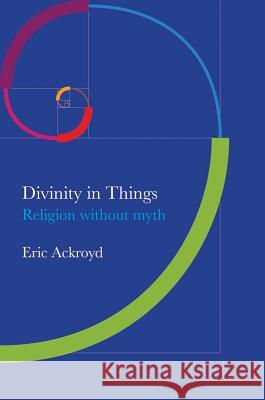Divinity in Things: Religion Without Myth » książka
Divinity in Things: Religion Without Myth
ISBN-13: 9781845193331 / Angielski / Miękka / 2009 / 189 str.
Divinity in Things: Religion without Myth provides a credible alternative to the so-called 'western' religions, which all trace their ancestry to the Hebrew Yahweh, who was the first sky-god to divorce (or be divorced by) his earth-mother consort, so initiating the long separation of God from Nature, putting an end to the feeling of oneness with Nature that had typified primal forms of religion. The author goes back in time, beyond the gods and goddesses of natural forces to the natural forces themselves, and then to the earliest known god-concept generally known as 'mana', translatable as 'energy' and denoting not only the forces of external nature, but also the creative powers of human beings. For 'mana', he substitutes the more familiar 'divinity' to depict the energy, presumed intelligence and rightness (beauty and goodness) of our universe. A central theme is that religion should be understood as a positive attitude - intellectual and emotional towards Planet Earth and, by implication, the total cosmos of which we are, spiritually speaking, crucial and significant components. Since the whole universe is the product of energy combined with intelligence, we should put our trust in the rightness of the universe, the rightness of nature. Such an attitude includes an ethical element: if awareness of divinity within all things and therefore within ourselves is cause for positive and joyful self-appraisal, this awareness must be justified by responsible, constructive and benign employment of our divinehuman creativity. Divinity is present in all things, including ourselves. But human beings, who possess intelligence and also considerable freedom of choice, sometimes abuse these gifts, even presuming to know better than Nature - with disastrous consequences. This book proposes lessons humankind needs to take to heart. Geniuses of all kinds the Einsteins, Bachs, Rembrandts and Gandhis whether believers or not, have received inspiration from their indwelling divinity. This message of trust of one s personal divinity has special relevance for today's troubled world."











